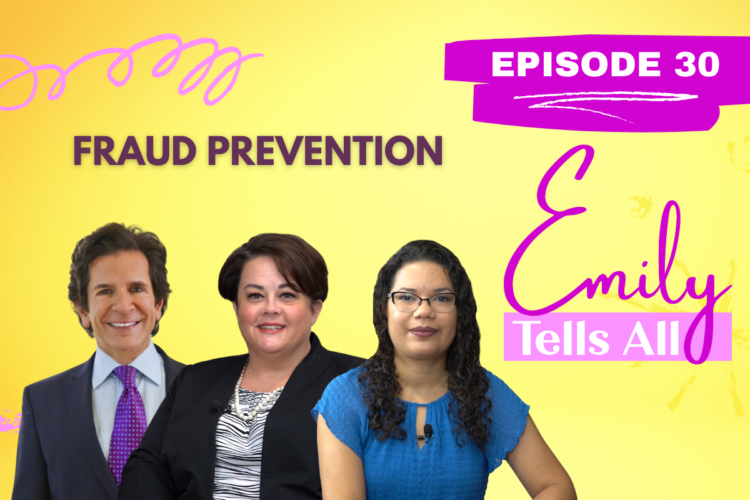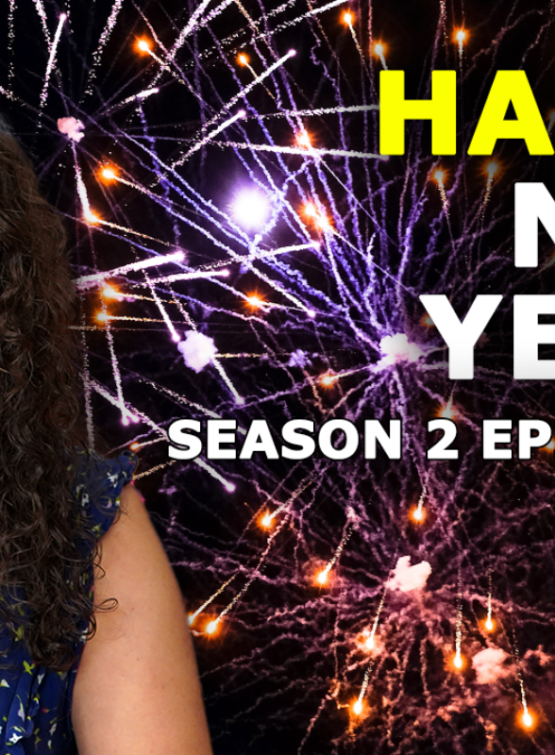AIR DATE DECEMBER 23, 2021
Title: Fraud Prevention
In this episode of Emily Tells All, learn of frauds to look out for and the resources that are available to you so that you don’t become a victim.
Guests and Locations
Better Business Bureau Central Florida, President/CEO – Holly Salmons
Nejame Law, Founder & Senior Partner – Mark Nejame
Learning Fraud Prevention from a Legal Perspective
Fraud prevention is a severe concern for every American. No one can completely avoid hackers and scammers. But that doesn’t mean you cannot take precautions to protect yourself from potential fraud.
Let’s discuss the many faces of fraud, how to prevent fraud, and what to do if you become a victim of fraud.
Hear from Holly Salmons, who serves as President & CEO of Better Business Bureau in Central Florida.
Then learn from Mark NeJame, the Founder of NeJame Law, specializing in Personal Injury, Civil Litigation, Criminal Defense, and Immigration.
The Better Business Bureau and Consumer Fraud
Whether hiring a contractor or making a purchase, knowing which companies you can trust can be challenging. That’s where the BBB comes in to help you make educated choices. Over 100,000 business records are in their system, and anyone can access that information.
“In the case of scams, we do our best at Better Business Bureau to educate consumers. Because we would much rather educate you and help you to avoid a scam before you lose personal information, before your information is compromised, before you lose money,” Holly explains.
There are a few red flags to watch out for when it comes to spotting scams and fraud with companies. First, consider how you were contacted. Was it unsolicited? Make sure you verify their credentials and information. Never give money to or do business with a company without doing research. If they ask for a large deposit up front, that should be a huge red flag.
You can reach out to the Better Business Bureau if you want to vet a company or navigate potential fraud or scam situations. They also have a Scam Tracker that allows you to view what scams are being reported in your area.
Spotting Fraud Online
Scams have been around for centuries. Over time, they have just evolved and turned into what we experience today. The anonymity of the internet is part of it. Paired with people who are unsophisticated about technology and those who are uber sophisticated about technology, the perfect scam landscape is created.
Unfortunately, many scam cases go unreported. The reality is that the chances of getting any money back from a scam are slim. Many scammers operate overseas or clean up their digital footprint well.
Common online frauds include fake emails, virus-infused emails or messages, and even scam artists posing on dating websites. “When people start asking for money, you know, then the Spidey senses need to go off, and you need to realize that there’s a good chance fraud is occurring. Charity scams are a large part of this,” explains Mark.
What To Do if You Experience Fraud
Keep all records, communications, and screenshots from your fraud experience as evidence.
If you become a victim of fraud online, report it to law enforcement and then present that saved information to them.
Mark advises, “If it’s a scam where it’s not just [on the] internet, but it’s somebody that’s defrauded you on business deals locally, hire a lawyer. I still report it, but I would see the lawyer first.”



